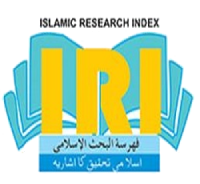Sex Reassignment: Islamic Perspective and Legal Frame Work of Pakistan
Keywords:
Sex Reassignment, Transgender, Intersex, Mukhannath, Khuntha, Islamic LawAbstract
This paper examines the Islamic perspective on sex reassignment and gender identity issues. It presents arguments both for and against sex reassignment procedures from an Islamic law standpoint. The methodology involves analyzing verses from the Quran, hadiths (sayings of Prophet Muhammad), and fatwas (religious rulings) from Islamic jurists and institutions. The paper explains the concept of sex reassignment surgery and the rationale sought by individuals undergoing such procedures. It discusses notions of gender identity and disorders of sex development (DSD). Key arguments against sex reassignment highlighted in the paper include: it goes against accepting Allah's creation, it tampers with divine creation which is prohibited, it can promote immorality in society, and inherits issues arise after changing gender identity. Arguments presented in favor include: psychological pressure on the individual, the principle of necessity permits prohibitions, it does not involve adopting the likeness of the opposite gender, and it is a treatment allowed in Islam for the sick. The paper analyzes fatwas from institutions in Saudi Arabia, Egypt, and Pakistan declaring sex reassignment impermissible for Mukhannath (transsexual) but allowable for Khuntha (intersex) to correct ambiguity. It also examines relevant court cases and laws in Pakistan concerning transsexual rights. The key findings suggest sex reassignment is prohibited in Islam except for intersex individuals, and Pakistan laws contradict Shariah principles according to Federal Shariat Court. Psychological treatment is recommended over surgery. The paper concludes Islam prohibits attempts to transition genders except for aligning intersex physiology.
Downloads
Published
How to Cite
Issue
Section
License

This work is licensed under a Creative Commons Attribution 4.0 International License.
This work is licensed under a Creative Commons Attribution 4.0 International License.




